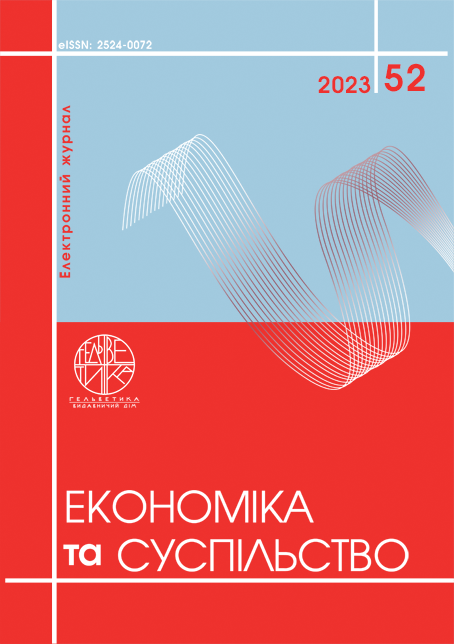TALENT MOTIVATION AS A METHOD OF SOCIO-ECONOMIC DEVELOPMENT OF PERSONNEL MANAGEMENT
Abstract
In connection with the continuous progressive development of the Chinese economy, enterprise personnel management has become an important part of social and economic development. Enterprise personnel management can promote stable talent development and job satisfaction, so it plays an important role in the sustainable development of the Chinese economy. To solve problems in the management of personnel development, it is suggested to improve and constantly innovate the management of human resources, including changing the concept of management, the motivational base, the compensatory mechanism of the impact of work results on the amount of the received reward. Based on this, this article analyzes the importance of innovations in the management of personnel development and outlines the innovative strategy of the enterprise's human resources management. The study also allows us to conclude that the construction of an effective work motivation system is directly dependent on the increase in the socio-economic level of development of the company's personnel.
References
Kurina T.N. (2020) New technologies of talent management in large organizations of advertising business. Leadership and management, 7 (1), 79–88. DOI: https://doi.org/10.18334/lim.7.1.41428
Cascio W., al Ariss A. and Paauwe J. (2014). Talent Management: Current theories and future research directions. Journal of World Business, 2, 173–288.
Cappelli P. (2008). Talent on Demand: managing people in an age of uncertainty. Boston: Harvard Business School Publishing, 280 p.
Cappelli P., Keller J.R. (2014). Talent Management: Conceptual Approaches and Practical Challenges. Annual Review of Organizational Psychology and Organizational Behavior, 1, 305–331.
Collings D.G., Mellahi K. (2009). Strategic talent management: A review and research agenda. Human Resource Management Review, 19, 304–313.
Dudin M.N., Frolova E.E. (2015). The Balanced Scorecard as a basis for strategic company management in the context of the world economy transformation. Asian Social Science, 3, 282–288. DOI: https://doi.org/10.5539/ass.v11n3p282
Michaels E., Handfield-Jones H., Axelrod B. (2021). The war for talent. Boston, MA: Harvard Business School Publishing, 200 p.
Thunnissen M., Boselie P., Fruytier B. (2023). Talent management and the relevance of context: Towards a pluralistic approach. Human Resource Management Review, 4, 326–336.
Danko Y.I., Reznik N.P. (2019). Contemporary challenges for China and Ukraine and perspectives for overcoming these challenges. Global Trade and Customs Journal, 14(6).
Danko Yu. (2022) Peculiarities of modeling Ukrainian-Chinese cooperation in the field of education. Management, 1 (35), 117–131.

This work is licensed under a Creative Commons Attribution 4.0 International License.


